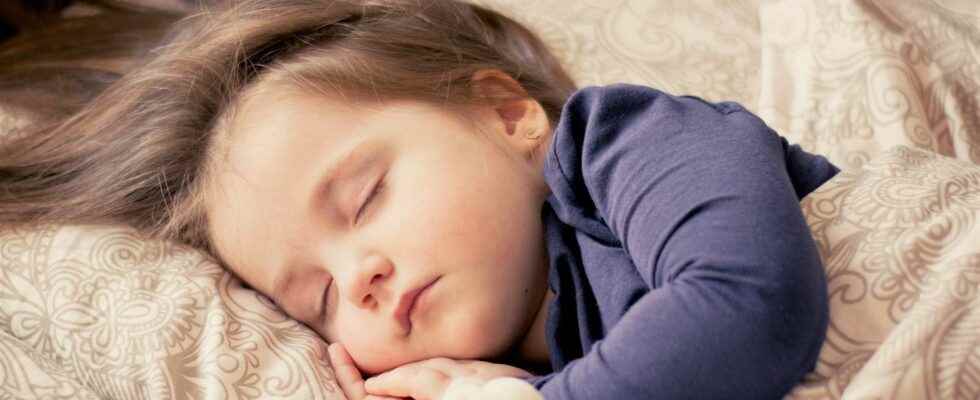You have noticed that your child snores regularly at night, even when he does not have a cold. Is this normal? Should I consult a doctor? During the day, it breathes through its mouth. In addition, he is often tired and has trouble concentrating in school. What if it was sleep apnea?
You will also be interested
[EN VIDÉO] The role of sleep Sylvie Royant-Parola, psychiatrist and sleep specialist, explains the roles of each phase of sleep, and why it is important to respect them.
Snoring is a raspy sound emitted by some people during their sleep. It is vibes abnormalities of the pharynx during inspiration. Due to a relaxation of certain muscles, the passage is obstructed and theair circulates less well. Snoring that persists, especially in children, affects the sleep quality. The child wakes up tired, he has trouble paying attention in class. Paradoxically, it is hyper-tonic and does not stay in place.
What if it was sleep apnea?
In France, one in 20 children is affected bySleep Apnea. It is a total or partial obstruction of the upper airways (nose and throat) for a few seconds. We are talking about pauses in breathing. The child’s sleep is restless, he is sweating in bed. During the day, he is exhausted and therefore irritable. He may complain of headaches.
Snoring is one of symptoms of the’Sleep Apnea. But snoring can have many other causes: nasopharyngitis, large tonsils, large vegetations… without generating apnea. In any case, persistent snoring in a child is not normal and should trigger a consultation with the doctor.
How is sleep apnea diagnosed in children?
All children can be affected by this pathology. The age groups most frequently affected are between 2 and 8 years old or between 12 and 16 years old. A premature birth constitutes a risk factor.
If sleep apnea is suspected, a polysomnography will be offered. During a complete night, in a sleep laboratory, the oxygen saturation in the blood will be measured in the child during different stages of sleep.
What is the treatment for sleep apnea in children?
While the machines pressure continuous positive (CPP) are very often used in adultsthis is rarely the case in children.
In children, we will seek above all to take care of the cause of the apnea and not only the symptoms. Very large tonsils or adenoids are often the cause of upper airway obstruction. It is possible to remove them by surgery. Being overweight can also trigger sleep apnea in children and a weight loss program will then be offered to the child and his family.
The management of sleep apnea in children is often multidisciplinary: pediatrician, ENT, nutritionist, orthodontist, physiotherapist…
Interested in what you just read?
Subscribe to the newsletter Health question of the week : our answer to a question you ask yourself (more or less secretly). All our newsletters
